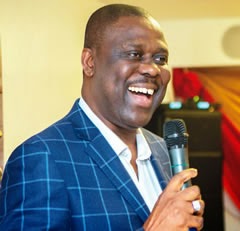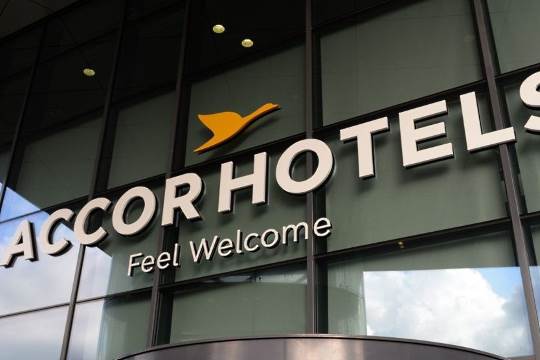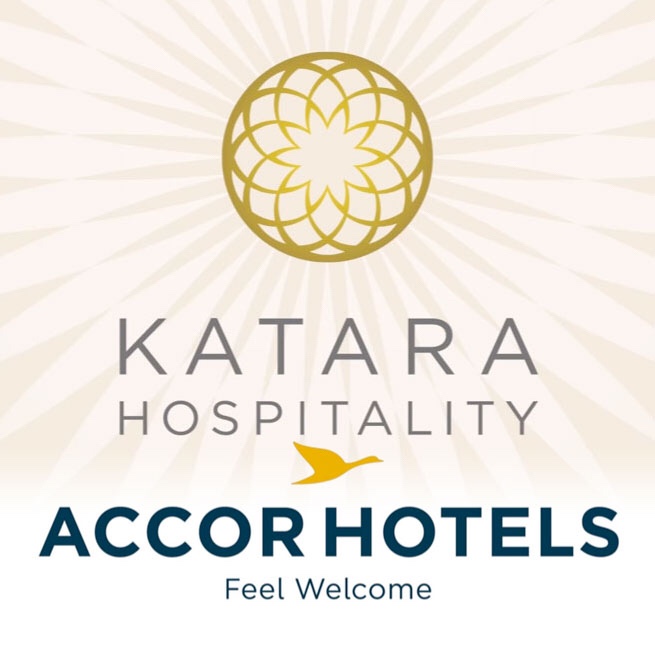ei Profile: Olufemi Okenla - HDV Nigeria Limited (Owner of the Hotel Ibis Lagos Ikeja)
Research . 6 years ago
AccorHotels
HDV Nigeria Limited
hotel development in Nigeria
Hotel Ibis
Olufemi Okenla

Share this post
Subscribe to our newsletter
In early April, Estate Intel sat down with Olufemi Okenla, Founder and Group CEO of HDV Nigeria Limited, to discuss the development and operations of their Hotel Ibis Lagos Ikeja, and the general hotel investment environment in Nigeria. Okenla is a lawyer who practiced in the United Kingdom, and began to invest in real estate both…
In early April, Estate Intel sat down with Olufemi Okenla, Founder and Group CEO of HDV Nigeria Limited, to discuss the development and operations of their Hotel Ibis Lagos Ikeja, and the general hotel investment environment in Nigeria. Okenla is a lawyer who practiced in the United Kingdom, and began to invest in real estate both in the UK and in Nigeria, since the early 1990s. His activities in the real estate sector expanded very quickly from passive investments into a full-blown venture. In our very candid interview, we discussed his first foray into the hotel industry.
HDV Nigeria Limited (otherwise known as Hotel Development Ventures) specializes in the development and operation of hotels, restaurants and resorts. The company developed the Hotel Ibis Lagos Ikeja, a 165-room, three-star hotel in the heart of the business district of Ikeja. The hotel, which opened in 2013, was completed within 40 months after groundbreaking – an uncommon feat in hotel development in Nigeria, where hotels tend to spend years in the pipeline, and sometimes with very little to no progress.
Critical Success Factors
The 40-month development programme was achieved thanks to various factors. For one, the HDV Group has its own construction company, so there were tighter controls over construction factors that impact development projects in Nigeria. The construction company also employed and closely supervised sub-contractors, when necessary. And AccorHotels (the French hotel group that owns the Ibis brand) was engaged very early in the development process. Bringing in Accor early in the planning meant that HDV was able to tap into the Paris-based hotel company’s experience developing and managing hotel properties in Nigeria as well as into their pool of approved suppliers. This helped to avoid making costly mistakes that tend to hamper the progress of many hotel developments in this market.
HDV also signed a Hotel Consultancy Services Agreement (HCSA) with Accor who advised on brand specifications and provided construction input. The hotel group was able to provide logistical support that aided in a smoother construction process, such as access to loading points in France and the United Kingdom for bulk shipments to Lagos.
Okenla stressed that creativity and outside the box thinking was a crucial factor. For instance, the development was able to construct an underground parking garage and maximize the limited 4,000 square meters that was initially available to build on. The underground level added an estimated 1,600 square meters in additional footprint to the development and currently provides parking spaces for up to 70 cars.
Developers typically tend to import the bulk of the raw materials used in construction, especially when constructing an internationally-branded hotel. However, having local knowledge of the market and the notable players allowed HDV identify and contract with local producers for some of the furniture and fixtures. The guest room furniture and corridor panels were manufactured and supplied by IO Furniture, a local manufacturing and interior design consultancy company (IO Furniture has also furnished the Four Points by Sheraton Lagos and the Wheatbaker Hotel Lagos). The guestroom beddings were manufactured and supplied by Vitafoam Nigeria Plc. The carpeting in the hotel was supplied by NOBEL Carpets and Rugs, a Nigerian company with the largest manufacturing facility of carpets and rugs in West Africa.
These favorable factors contributed to a relatively low construction cost of approximately US$100,000 (or NGN 16.4 million) per key and a total cost of US$16.875 million (~NGN2.7 billion) in 2013, inclusive of land cost. HDV put up 60 per cent of the total project cost with an equity contribution that included the land value while a Skye Bank loan financed the remaining 40 per cent. This relatively low debt leverage allowed for a less pressured development programme. In addition, the hotel’s operations have also grown more organically without the added pressure to achieve high room revenues for debt servicing in the initial opening years when the hotel is still ramping up. This means that the room rates are more reflective of what the market can pay, as opposed to what has been internally determined can support debt payments. The hotel has also been able to strategically pivot to focus on a largely domestic demand market, after the country’s recession began to negatively impact foreign demand.
Operating an Economy Hotel Brand in the Nigerian Environment
When Okenla conceptualized his budget/economy hotel for the Lagos market, his idea was met with some skepticism. Critics did not believe that there was much room for a standard economy brand in the Lagos market – the general high cost of hotel development in Nigeria, high land values, the relatively low price of budget hotel rooms, the limited scale of facilities (or lack of expansive facilities, such as multiple food and beverage outlets, spa, etc.), were often cited as reasons why. However, he persevered citing his personal experiences with business travel where sometimes only a clean bed, bathroom and a hot meal were required on a trip, and the lack of hotels operating at this scale in the Nigerian market. An initial market and financial feasibility study, as well as early buy-in from Accor also convinced him to continue to advance the project.
Following the opening of the Hotel Ibis Lagos Ikeja in 2013, demand for hotel rooms in Lagos was negatively impacted by the Ebola crisis in 2014. Insecurity and militant activity in the country worsened in the following years, the Presidential elections were held in 2015 reducing demand levels and then recession hit in 2016. The operating environment became much tougher as the hotel was still ramping up performance however, already being positioned in the economy scale has actually worked in the hotel’s favor in the current environment. Maintaining operations is still tough, but operating at 40 per cent to 50 per cent room occupancy is positive in a market where other higher scale, international hotel brands are currently struggling with much lower occupancies whilst still having to slash prices to attract demand.
Management versus Franchise Agreement
The Ibis Hotel Lagos Ikeja was signed as a management agreement – meaning that the owner maintains ownership of the property and the hotel operations, while the management company brands and manages the operations for a fee. Typically the fee structure is a base fee of two to three per cent of total revenue, plus an incentive fee, which can range between 10 to 20 per cent of gross profits. Franchise agreements tend to be more economically profitable for a hotel owner. There is usually an initial fee paid upon submission of the franchise application, and then continuing fees such as royalty and marketing fees paid as a percentage of revenues.
Hotel companies tend to insist on management agreements when signing hotel development deals in Nigeria, citing the undeveloped nature of the markets there and no third-party hotel management companies that can operate the hotels at the brand level and standards required of an international brand. The Ibis Lagos Ikeja was initially signed as a management agreement, but HDV was able to effect the transition of the hotel’s operating structure from a management agreement to a franchise agreement, making this one of the few properties in Nigeria with such a structure.
Looking Forward
Where HDV was able to develop its first hotel with 30 per cent locally-sourced content, the company is hoping to achieve at least 50 per cent locally-sourced content in subsequent projects. However local suppliers will need to become more competitive, and more creative in ensuring their expenses are manageable.
Okenla also lamented the lack of locally available skilled labor to manage the development process, as well as the hotel’s operations. Much of the skilled labor along the production and supply chain of delivering a hotel product has to be imported, and more needs to be done locally to invest in developing the skills necessary in the industry.
HDV was developing plans for hotels in other markets including Lekki, Abuja and Warri, but is holding off for a more stable economic environment. The company has a vision to expand its budget/economy hotel concept across the sub-Saharan African region. HDV has also been tapped by the Lagos State Government to develop a low-cost housing project in the state. The company delivered 144 flats in eight blocks of mixed one and two bedroom units at a rate of under five million naira per flat (excluding land).
The company plans to continue to replicate its demonstrated expertise in high quality building development, using modern and creative building technologies, high quality management, and within the shortest time possible.
Related News
You will find these interesting

Research . September 05, 2018
AccorHotels
acquisition

Research . July 24, 2018
Accor
AccorHotels

Research . April 30, 2018
AccorHotels
AccorInvest